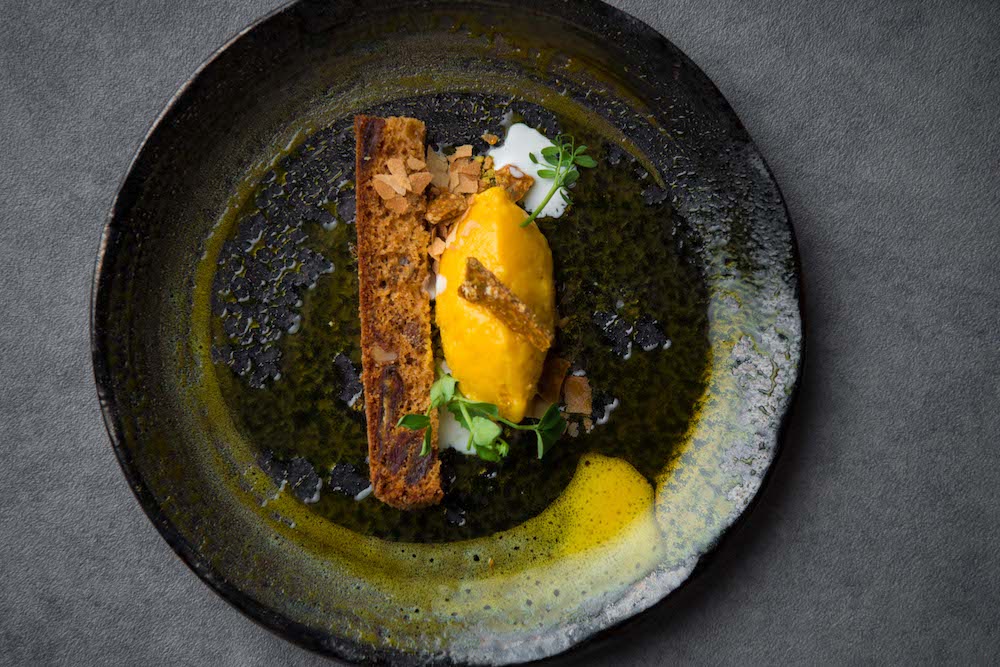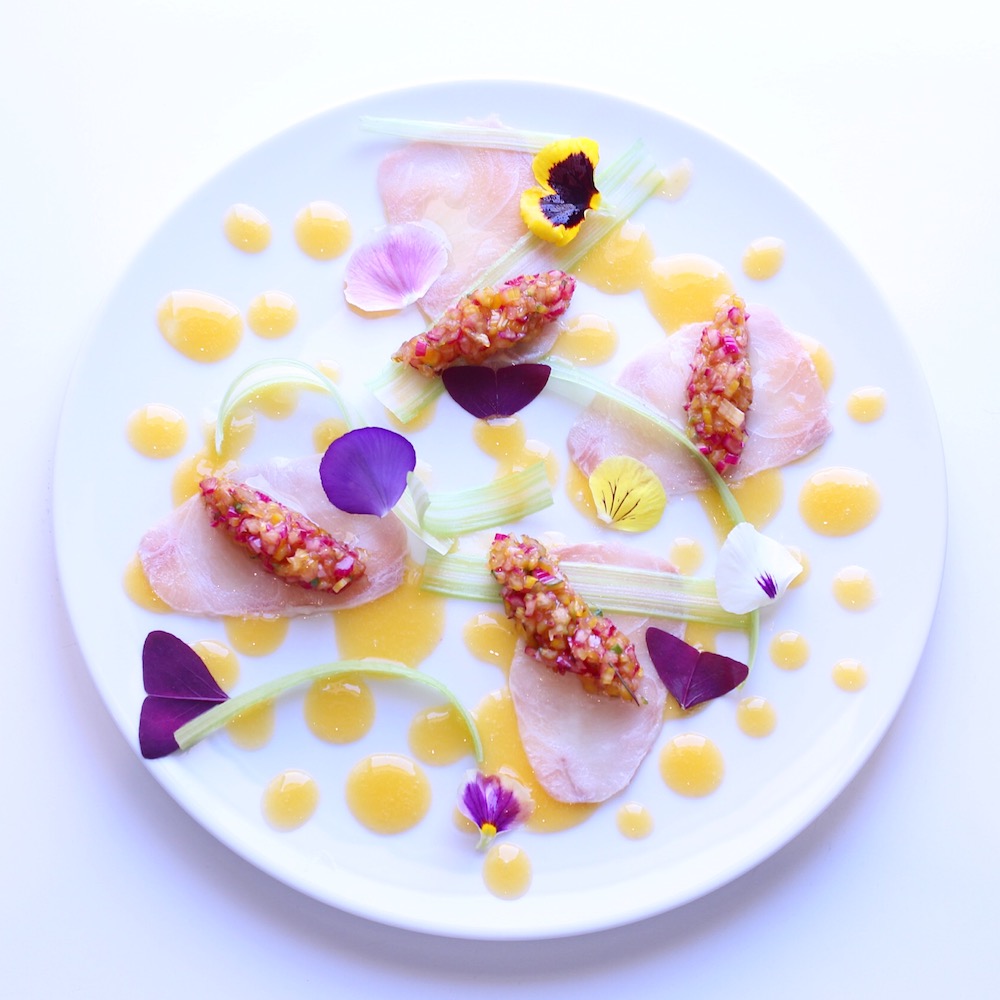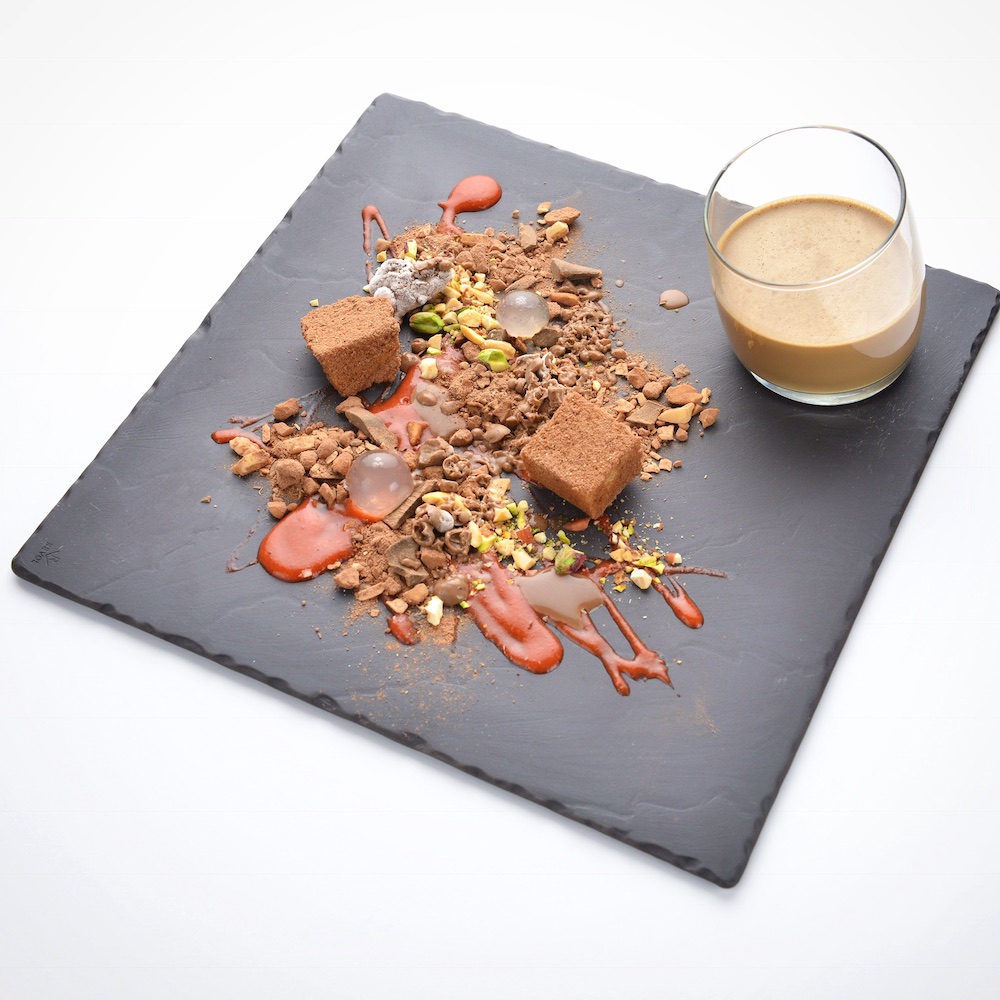KUWAIT CITY: A chef in the Middle East has taken the concept of giving back to the community to a new level with his popular farm-to-table project.
“The Community Table idea came about when I was studying and working in Miami,” said Firas Al-Zaid, founder of what has become one of the best-known culinary initiatives in Kuwait.
“I was constantly being inspired by other chefs and farmers, and those experiences evolved into a yearning to create a community back home — one that would allow us to grow as one force.”
The result is Community Table, which he launched in 2013 and is locally sourced in every sense. It brings together young Kuwaiti chefs from diverse culinary backgrounds to prepare multi-course menus made with ingredients that come directly from local farms.

Community Table brings together young Kuwaiti chefs from diverse culinary backgrounds to prepare multi-course menus made with ingredients that come directly from local farms. (Supplied)
“The typical format of a Community Table event is usually born with a single idea or food theme,” said Al-Zaid. “We then carefully build on that concept through sourcing from our farmers, as well as in collaboration with other entities, to bring the vision to life.
“Within the framework of a multiple-course tasting menu that highlights that particular theme, guests are seated at one table in an intimate setting of mostly strangers, which makes the experience even more exciting.”
Though the chefs and ingredients are local, the themes for the menus span diverse regions and cultures, and also the changing seasons.
For example, the beginning of the local harvest inspires a culinary adventure — “a uniquely themed ‘harvest special” — that explores our relationship with food, which has become somewhat strained in the modern era of takeaway menus and fast-food dining.
“Food is its own universe, and traveling through different cuisines allows us to remain curious,” said Al-Zaid.
FASTFACT
* All ingredients used by Community Table chefs come directly from local farms
“The most gratifying part of paying homage to other food regions is that we’re able to do so using local and indigenous ingredients, and the cultural parallels that are connected in that process are very mentally stimulating for a chef.”
The participants in a Community Table event almost always are total strangers who gather at a table simply to enjoy the group dining experience, which brings the focus on food back to where it belongs, he added.
“Through the power of food, long-lasting friendships have been built over the years,” said Al-Zaid.
He also emphasized the importance and significance of working together as a community to bring food to a table, an endeavor that goes beyond simply preparing a meal.

Though the chefs and ingredients are local, the themes for the menus span diverse regions and cultures, and also the changing seasons. (Supplied)
“We often have artists bringing their talent to our pop-up art and menu design,” he said. “Local baristas are often featured as a finale to the meal, and each table setting and the ambience is entirely re-imagined for each event.”
The venues and settings are carefully considered, too. The first Community Table took place at Sadu House, a popular historic landmark in Kuwait. Subsequent events have been held in a variety of locations, including farms, restaurants and even museums.
The COVID-19 pandemic forced social gatherings to be suspended, but even in these challenging times Al-Zaid has found ways to share his vision of bringing the community together through a love of food, this time online with virtual cooking classes. These include a box of fresh ingredients that is sent to participants to use during the group sessions.
The chef also presents regular tutorials in the form of 60-second Instagram videos that explain some basic “how to” cooking techniques that are handy in the kitchen.

The COVID-19 pandemic forced social gatherings to be suspended, but even in these challenging times Al-Zaid has found ways to share his vision of bringing the community together through a love of food. (Supplied)
In a country that has long been ranked as one of the worst in the world in terms of obesity and health issues, initiatives such as Community Table offer a much-needed counterforce. They encourage people to ask questions about what goes into the food they eat and where it comes from, while also raising awareness of the benefits of choosing natural, locally sourced ingredients.
On a more personal level, Al-Zaid said his professional journey has been long but rewarding.
“Being a chef is extremely gratifying and I really consider it an honor,” he said. “But it also has some deeply low points that challenge you to constantly find new ways of staying motivated.
“Working with others for a common cause is a necessary reminder that none of us are alone in this.”
* This report is being published by Arab News as a partner of the Middle East Exchange, which was launched by the Mohammed bin Rashid Al Maktoum Global Initiatives to reflect the vision of the UAE prime minister and ruler of Dubai to explore the possibility of changing the status of the Arab region.














